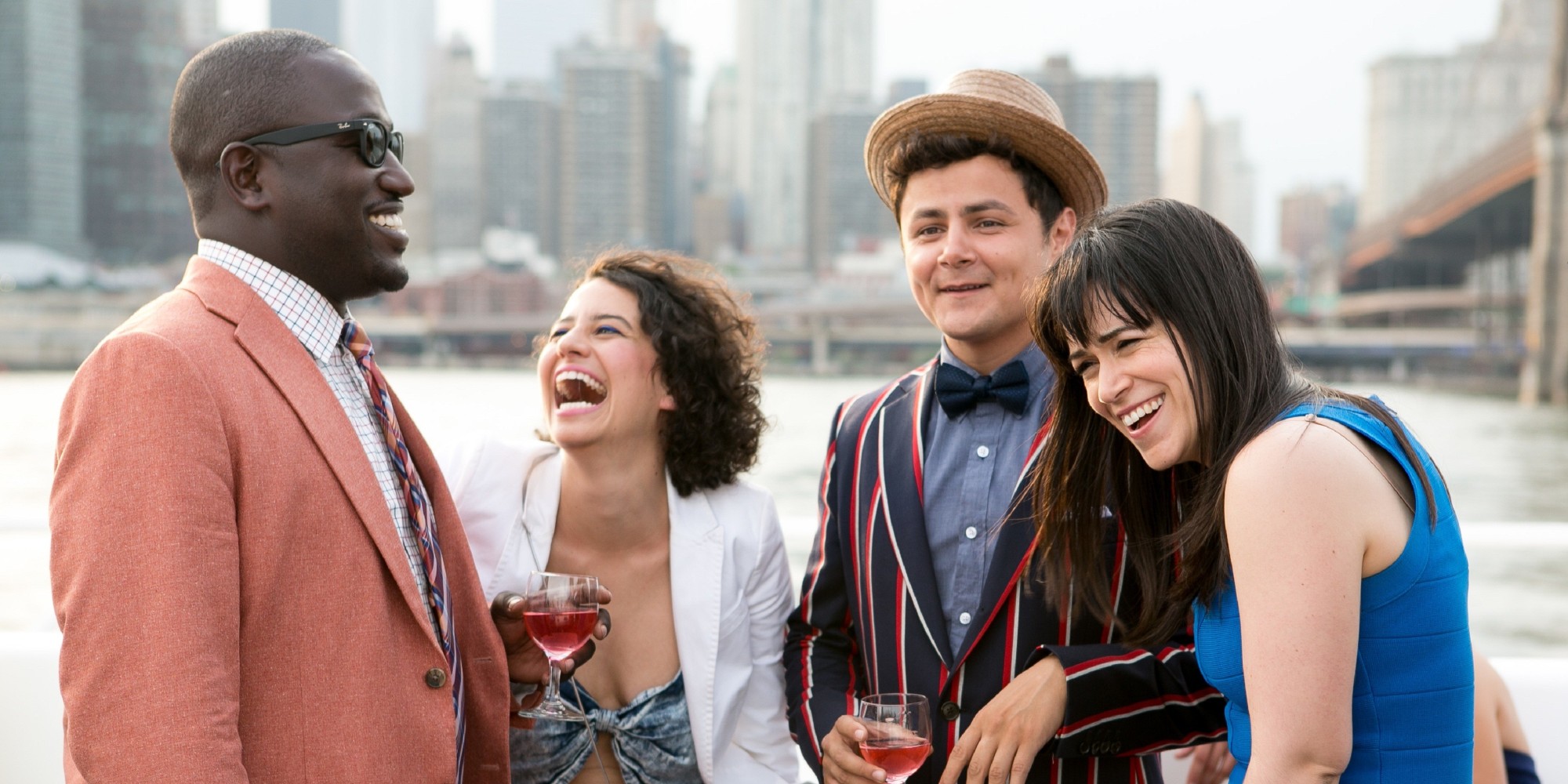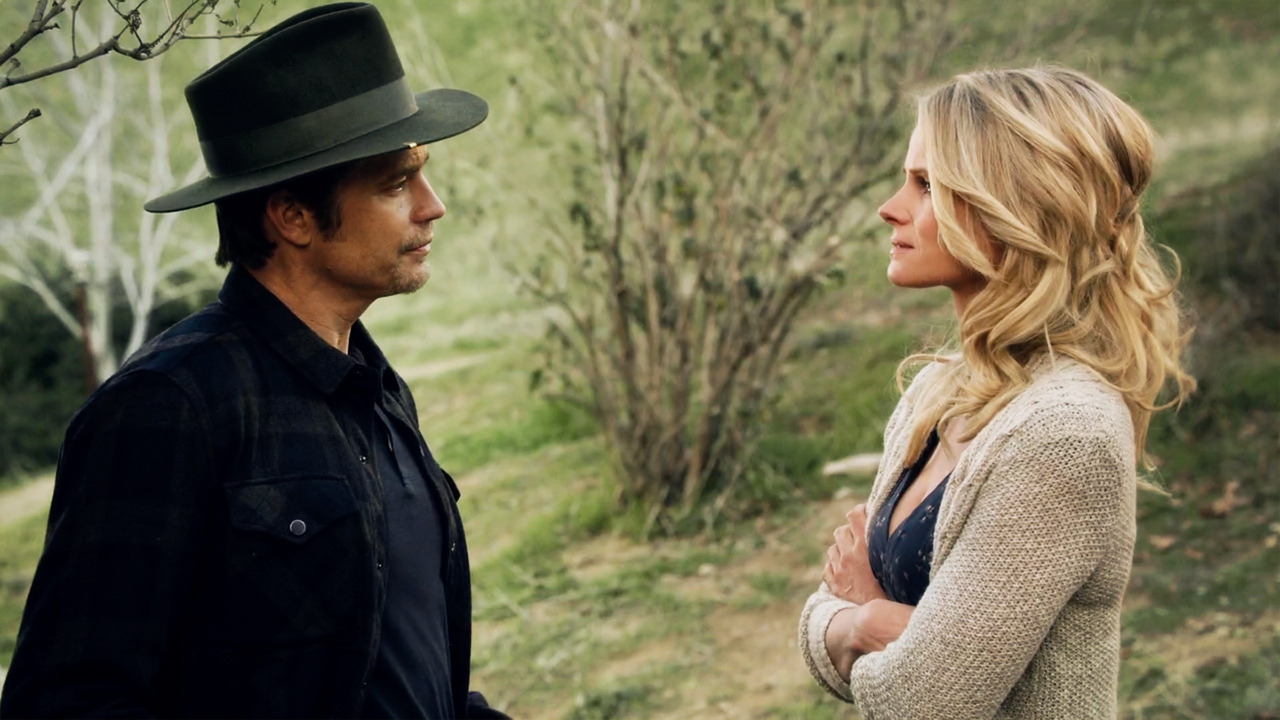It’s been a (half) year of fascinating debuts (Bloodline, Better Call Saul), brilliant endings (Mad Men, Justified) and bumpy rides for some of TV’s (formerly) most reliable shows (The Good Wife).
In short, it’s been an interesting six months. And we wanted to weigh in on the best of TV thus far as other critics have been doing. We both compiled an individual top 10 before combining them for a “Critics in College” aggregate. So below, the 10 shows you’ll see -- and in the order you see them -- are based on our combined, often similar but sometimes varying sentiments.
We’ve also published a compilation of what other critics have been saying at the year’s halfway point, and you can check that out here. Every show listed below has been reviewed, or at least analyzed, on this blog, and excerpts of what we've said in the past are included.
Without further ado, here’s Critics in College’s Best TV Shows of 2015, so far.
10) Empire
From David’s review: “It’s hard not to assess Empire without digging into its phenomenon-level status. The show is at its best in the way it confronts and conflates racial and sexual identities, actively working against stigma and making a legitimate breakthrough in terms of media representation. That Empire has as broad a reach as it does, and executes these ideas with such impressive nuance and commitment, is unavoidable in the assessment of its quality. Some images sting, like a flashback of Lucious literally throwing a young Jamal, donning heels and a scarf, in the trash. And other moments are infectious: few TV moments so far in 2015 were as jovial as Jamal belting out his father’s smash hit “You’re So Beautiful,” and re-wording the lyrics to fashion it as an energetic coming-out performance. You watch these moments, extracting emotions exactly as they intend and then some, and you remember just how many people are watching the damn thing: like you’re a part of a groundbreaking piece of storytelling, it’s impossible not to get swept up in it.”
9) Orange Is the New Black
From David’s review: “In form, Orange Is the New Black plays like a funky, jubilant ode to its subjects. For the most part, the women who inhabit the show are realized through an endeared, even adored lens. Kohan makes no excuses for that. She holds an ability like I’ve never seen, to draw a seemingly limitless set of characters, each more varied in mannerism, in speech and in worldview than the last. Her show can feel ill-suited to the hour-long model, but then again, she has so much stuff to say and so many ideas to explore that 13 hours seems the bare minimum -- seriously, I didn’t have room to mention, let alone engage with, the sweeter-than-sugar flirtation between Healey (Michael J. Harney) and Red (Kate Mulgrew), or Lorna’s (Yael Stone) riotous quest to find a man, or that marvelously strange episode dedicated to the “invisible” Chang. But that’s the show’s consummate power. It touches so many communities and perspectives, and observes them with equal parts respect and playfulness.”
8) Broad City
From David’s review: “I could spend paragraphs writing about the depiction of the Abbi/Ilana friendship, which despite being devoid of conflict is emotionally, comedically and through any other prism completely engaging. It’s groundbreaking, unquestionably; Broad City, like dozens before it, is a comedy series centered on a friendship, but it presents its central relationship as totally functional and, perhaps, somewhat idyllic. I won’t say anymore, though: Broad City does so many things right and breaks so much new ground (which is not necessarily mutually-exclusive), and yet it’s the perfectly-pitched comedy -- and transporting nature of that comedy -- which must receive the bulk of the praise. I suppose it all might be interlinked. Warmly audacious and bitingly funny, Broad City’s second season is a thrilling exercise in (successfully) bending the limits of the sitcom.”
7) It’s Always Sunny in Philadelphia
From David’s review: “For whatever reason, Sunny has never galvanized critics in the way some other, lesser shows have. The show has churned out so many classics, and has through 10 seasons maintained such a sky-high level of quality, that its perpetual under-the-radar status can be tiresome for ardent fans. But it’s also the show’s enduring appeal. Without a glut of awards attention or critical campaigns to keep the show comfortable, Sunny rolls on, vibrant and excited, eager to prove itself and willing to go to some hilariously politically-incorrect places in the process … Truthfully, I’m not sure there’s ever been a time I walked away from a show’s 10th season so tickled and impressed. Through each season, Sunny gets a bit more reflective, a bit more experimental, a bit weirder. But within this show’s flexibly absurd construct, everything works; it’s all kept reliably, immensely funny. Dynamic, energetic and brashly hilarious, It’s Always Sunny in Philadelphia is as good as ever, a full decade after it began. Here’s to an 11th season.”
6) Veep
From David’s piece on power politics: “Playful dildo puns, "fucks" coming in a mile-a-minute, character nicknames whittled down to "Jolly Green Jizz Face" — this is not the careful deconstruction of our political system one would expect. And yet, it's the definitive expression of our moment. It identifies idealism, and mocks it mercilessly before inhaling it, chewing it up and spitting it out … On the surface, this is a craftily satirical take on our ever-worsening political dysfunction. But as TV comedy, the necessary balance to strike is exceptionally precise, and Veep manages it again and again. Its characters are smart and capable enough to believably exist in this world we know all too well; they're powerless enough to maintain their jobs and yet incompetent enough to keep the humor coming in thick.”
5) Mad Men
From Andrew’s series finale review: “Throughout this half-season, Don Draper has been giving his material possessions away: to Megan, bequeathing five million dollars when he absolutely didn't need to, or to the young con man in "The Milk and Honey Route," offering his car before warning him “not to waste this.” He no longer has a home, a job or a family. Anna’s niece leaves him stranded at the end of the episode. In their last conversation, she’s wondering what exactly he thinks their relationship is, or has been, or could be, and who exactly he thinks he is -- that, all of a sudden, he can come in and nobly play the savior to her when it's clear that he’s just evading his own problems? ... "Person to Person" whittles down the myth of Don Draper to a unique blend of biting comedy and authentic realism. The title of the finale is all-too-appropriate, and reflects Mad Men at its most self-contained and thematically rich. The characters find their endings through modest interaction – until the very last 10 minutes, it simply feels like another episode of Mad Men. Weiner steers clear of the melodrama, in favor of honest moments that reflect the gravity of personal history. And honesty means taking our characters for who they really are, all the way until the end.”
4) Bloodline
From Andrew’s piece on the illusion of family: “We hear reiterations of regret and anguish uttered throughout by Chandler’s John Rayburn, whose soft and morally convincing drawl attempts to convince us throughout that what was done was absolutely necessary, that it had to be done. After finishing this whole season in two days, there’s one scene that sticks in my mind, one that defines what this show worked towards in terms of character. John, Kevin and Meg – after the dirty deed is done – are all sitting across from each other in the dimly lit living room … He comes to a realization: “I just realized something. This family never says it. I love you.” The camera examines Meg and Kevin’s faces, devoid of any emotion. The bonds feel tenuous and strained. All their lives, they’ve felt the pressure of having to live up to the name, “Rayburn,” and now that they’ve sacrificed a Rayburn to that purpose, an emptiness registers and startling realization finally settles. As John says later, “I thought the best thing that ever happened to me was being born a Rayburn. Now, I'm not so sure.” Danny was the common enemy, the evil and deranged brother, but, without him, all they have are each other. They aren’t anything to each other now but their bloodline.”
3) Justified
From David's reflection on the series: "Intriguingly, the sixth and final season of Justified revealed that its swiftly-applied gloss of cable prestige was just that -- gloss. Rich with three-dimensional characters and compelling themes, the show capitalized on its strengths as it headed towards the finish line and pulled back in certain important areas. Raylan, affection for the bad guys and occasional ineffectuality as a lawman notwithstanding, was affirmed as a more classically Western hero, a genuinely “good guy.” His adversary, Boyd Crowder (Walton Goggins), ranged closer to the villainous end of the spectrum than in any past season, while the woman perpetually caught between them, Ava Crowder (Joelle Carter), bounced back and forth with the frequency of a pinball in its prime. But most importantly, Yost and his writers maintained a commitment to having fun. Although it landed at a satisfyingly dramatic point, the season as a whole was as inspired in its comedy and entertaining in its looseness as anything that’d been tried before."
2) Silicon Valley
From Andrew’s review: “The question with Silicon Valley was not if it would get better, but when … Meaningful characterizations always rest alongside moments of spectacular comedy. Take, for instance, the scene before the judge reveals the verdict in the season finale, in which Gavin helps Richard tie his tie in the bathroom. It's a strangely paternal yet also damning moment for Hendricks, as he steps into the shoes (or, to be more exact, fits himself into the tie) of a man he doesn’t want to become. It’s also, perhaps, more indicative of the lack of social skills these men have, that – even as mortal enemies – there is civility and cordiality. After all, Gavin asks his guru if he’s surrounded himself with people who only tell him what he wants to hear without even a slight recognition of irony. It’s not that he’s necessarily evil, he’s just not aware of what his environment has turned him into. His disconnection from the daily grind at Hooli (a big theme this season) speaks to his overall disconnection from the real world. Mike Judge’s characterizations are always funny and absurd, but they're also true to character.”
1) The Americans
Disclaimer: No, unfortunately, we didn't get to every show that aired in the past six months, and it's safe to say that had we, this list might look a little different. Tweet or email us if you're curious about what we've yet to check out!









